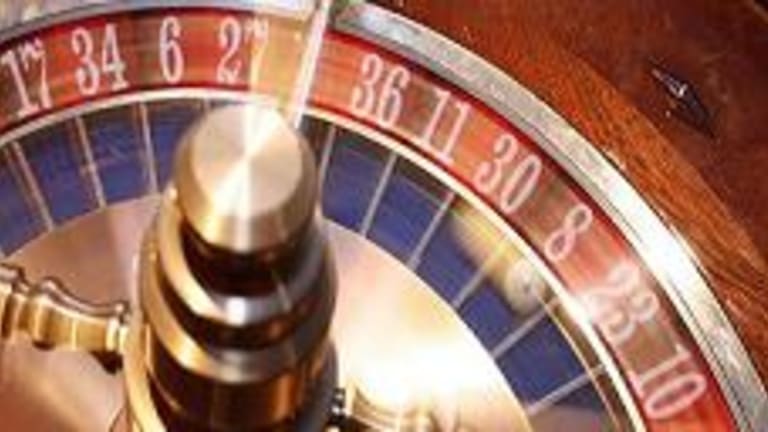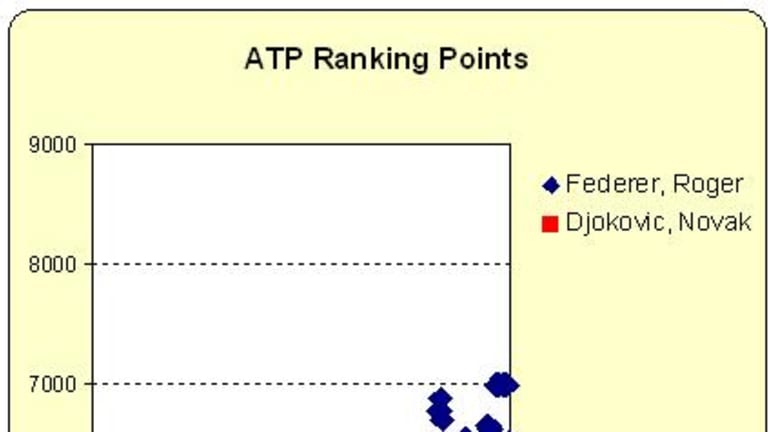In "Blade Runner," Ridley Scott offers one answer: our memories. Early in the movie (filmed in 1982, set in 2019) Deckard (Harrison Ford) is introduced to Rachel, an assistant to Tyrell, the creator of a set of android replicants. Deckard comes to realize that Rachel is herself a replicant, with implanted memories, and Rachel has been unaware of this.
In a twist made explicit in the later Director's Cut version of the movie, we find Deckard's own humanity called into question. What are any of us, if we aren't our memories?
I don't subscribe to this view. We're human because we spend so much of our lives in the future.
All animals do this, at least to a limited extent. Hunters wouldn't be very successful, and prey wouldn't have a fighting chance, if they couldn't anticipate, to a certain extent, their adversaries next move. As humans, we've taken this a bit further in games like chess, backgammon and bridge - "if I do this, she'll do that." One of the best introductory textbooks on game theory "Games of Strategy" by Dixit and Skeath, features a lovely discussion of whether Martina Hingis should cover a DTL or crosscourt pass facing Seles, introducing the idea of mixed strategies and payoff matrices.
But, being human, we think much further than this. Who will win tomorrow? Who will be number 1 at the end of the year? How many Grand Slams will Andy Murray, Novak Djokovic, Rafael Nadal or Roger Federer win?
A way of coping with this is to make definitive statements about the future. TW servers felt the strain when outraged Nadal fans (hi daylily!) exploded in righteous fury at a Cliff Drysdale response of "No" to a question (in the early rounds) of whether Nadal could win Wimbledon.
Drysdale might have been better served by saying "that's a steep hill to climb." How steep? Here's where another human attribute (comparatively recent) comes in - our ability to estimate how hard a task is in quantitative fashion.
I'm going to work with approximations here, so bear with me. I'll use data sourced from our Picks Game for R32, R16 and the QF stage (I haven't worked with the SF or F data yet).
Nadal met Fish and Eschauer in rounds 1 and 2: I'll credit Nadal with a 90% and 95% chance, respectively, of getting past each opponent.
In rounds 3, 4 and 5, Nadal met Soderling, Youzhny and Berdych. The Tribe's pre-match assessment of each of these matches was 96%, 57% and 52% chance Nadal would prevail.
Then you have Djokovic in the SF. Not sure (haven't added up the data yet) of the Tribe pick probability, but let's assess it at 80%. And tomorrow, Roger Federer, the reigning king of grass. Just as Nadal started out favorite at Roland Garros, you'd likely make Federer favorite tomorrow - let's say Nadal could pull it off 35% of the time, for argument's sake.
What you're left with, if you treat the probability of Nadal winning the tournament as the product of the component match probabilities (a fair starting point) is a 7% probability that Nadal ends up the tournament winner.
Actually, this is probably poor from a pre-tournament perspective: there wasn't a 100% probability that Nadal would have to fight through the actual murderer's row he faced (Federer, for example, might have fallen to a Roddick who dismissed his prior opponents, including the always disappointing Gasquet in 3 sets). So for argument's sake, let's double Nadal's pre-tournament probability to 14%.
Still not great odds. Worth a flutter though, and probably not a resounding "No!'
This kind of thinking is the bread and butter of my day job: decision analysis. How do you decide what to do, faced with uncertainty? A decision analyst has one credo: good outcomes are what we like, but good decisions are the best that we, ourselves, can do. We share this philosophy, interestingly, with professional poker players: a TJ Cloutier or Gregg Raymer will tell you that they can play the pot perfectly and still lose. Sometimes, like our Seles - Hingis example above, you come in behind a great approach, cover the DTL pass, and see an opponent play an impossible cross court pass.
If we're honest, we remember our good forecasts longer than our bad ones. Here's one that I'm going to puff out my chest on for a few days: back in April, in one of the TW comment threads, I wrote:
"steggy: Djokovic may not be number 2 by year end, but he has a genuine shot at no 3. He's defending 70(!) points from Monte Carlo, Barcelona and Hamburg, and didn't enter Rome last year.
At RG, Wimbledon and US Open he has a Q, R16 and R32 to play with from last year. Also 0 from Montreal/Toronto and 35 points from Cincinatti.
So that's 660 points to defend, out of a potential 5800 or so. He only needs to get to 3000 (from a current 2540) to be challenging for number 3. Nadal and Federer are in a different plane, but number 3 is well in reach, I think."(04/03/2007 @ 12:05 AM )
If my arithmetic is right, Djokovic gains 300 points from his Wimbledon SF (450 minus 150, R16 last year) and will have 3310 ATP points on Monday. Roddick gains 175 (250 QF - 75 R32 last year) to put him at 3230, making Djokovic number 3, with the US hard court season still to play.

